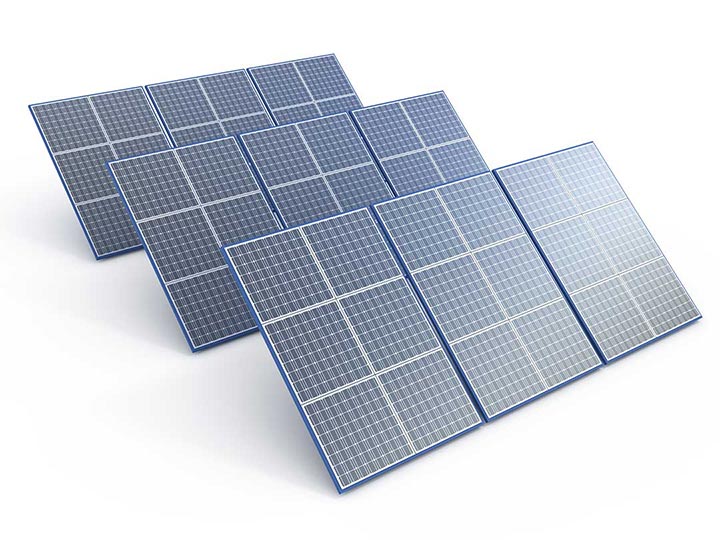
Image Source: Google
In recent years, there has been a growing interest in renewable energy sources as we strive to reduce our impact on the environment and move towards a more sustainable future. One of the most popular and widely used forms of renewable energy is solar power, harnessed through photovoltaic solar panels. While solar panels are known for their ability to generate clean energy, there are also concerns about their environmental impact. Refer Link: https://cloverenergysystems.com/pv-solar-panels/
The Benefits of Photovoltaic Solar Panels
Before delving into the environmental impact, it is important to understand the benefits of photovoltaic solar panels:
1. Clean Energy Source
- Solar panels generate electricity without producing greenhouse gas emissions or air pollutants.
- They help reduce reliance on fossil fuels, which are major contributors to climate change.
2. Renewable and Sustainable
- Solar energy is a renewable resource that will never run out.
- It provides energy security and independence from unstable energy markets.
3. Cost Savings
- By generating your own electricity, you can reduce or eliminate your energy bills.
- There are also financial incentives and rebates available for installing solar panels.
Environmental Impact of Photovoltaic Solar Panels
1. Manufacturing Process
The production of solar panels involves various materials and processes that can have environmental consequences:
- The mining and extraction of raw materials such as silicon, glass, and metals can result in habitat destruction and water pollution.
- Energy-intensive manufacturing processes contribute to carbon emissions and other air pollutants.
2. Energy Payback Time
Energy payback time refers to the time it takes for a solar panel to generate enough energy to offset the energy used in its production:
- For most photovoltaic solar panels, the energy payback time ranges from 1 to 4 years.
- After this period, the solar panels continue to generate clean energy for many more years, effectively reducing their environmental impact over their lifespan.
3. End-of-Life Management
Proper disposal and recycling of solar panels are crucial to minimizing their environmental impact:
- Solar panels contain materials that can be hazardous if not handled properly, such as lead and cadmium.
- Recycling programs are available to recover valuable materials and reduce the need for new resource extraction.
Improving the Sustainability of Photovoltaic Solar Panels
1. Eco-Friendly Manufacturing
Efforts are being made to improve the environmental performance of solar panel manufacturing:
- Using recycled materials and implementing cleaner production methods can reduce the environmental footprint of solar panels.
- Investing in research and development to create more efficient and eco-friendly solar technologies.
2. Extended Product Lifespan
Prolonging the lifespan of solar panels can enhance their sustainability:
- Regular maintenance and cleaning can help maintain the efficiency of solar panels over time.
- Technological advancements are leading to more durable and long-lasting solar panel designs.
3. Responsible End-of-Life Practices
Ensuring proper disposal and recycling of solar panels is essential for a sustainable future:
- Implementing take-back and recycling programs to manage end-of-life solar panels responsibly.
- Developing innovative recycling technologies to recover valuable materials from decommissioned solar panels.
Conclusion
Photovoltaic solar panels are a valuable and sustainable energy source that can help reduce our reliance on fossil fuels and mitigate climate change. While there are environmental considerations associated with their production and end-of-life management, ongoing efforts to improve the sustainability of solar panels are underway.